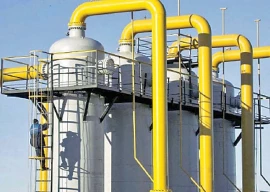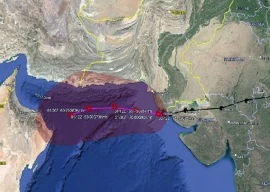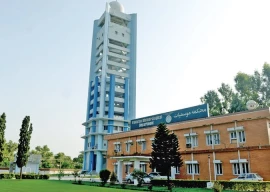
Pakistan’s total debt and liabilities surged at an unsustainable rate of 26% to a new record level of Rs78 trillion in just the past year—a sum that cannot be managed in the longer term without debt restructuring.
The State Bank of Pakistan (SBP) reported on Friday that the country’s total debt and liabilities had escalated by Rs16 trillion as of the end of September compared to the previous year. The SBP noted that the total debt and liabilities of the country had reached Rs78 trillion, with Rs4.7 trillion attributed to liabilities. The government accumulated debt at a rate of 26%, averaging Rs44 billion per day since September of the prior year.
Austerity measures introduced by successive governments have remained merely theoretical exercises without yielding substantial benefits. No government has implemented meaningful reforms to curb the accumulation of debt. The three mainstream political parties have faltered and appear unwilling to undertake the challenging path of debt restructuring.
For the current fiscal year, the finance ministry had initially budgeted Rs7.3 trillion for interest payments alone. However, the government recently informed the International Monetary Fund that interest payments could soar to a staggering Rs8.5 trillion—a Rs1.2 trillion deviation in just four months, yet no accountability was seen for the flawed budgeting.
Read Workers’ remittances hit seven-month high
The cost of servicing the debt cannot be diminished until the central bank reduces the key policy rate and the government negotiates with commercial banks for a reduction.
The gross public debt, which falls under the direct responsibility of the finance ministry, totalled Rs64.5 trillion by the end of September, as per SBP data.
In the previous fiscal year, the federal budget deficit soared to a record Rs6.7 trillion, attributed to the expansionary and politically motivated fiscal policies of the PDM government. The surge in public debt exceeded the budget deficit, indicating the impact of currency devaluation. During their respective five-year terms, the PML-N added approximately Rs10 trillion, the PPP Rs8 trillion, and the PTI alone accumulated over Rs19 trillion in public debt.
The burden will persist until significant reforms are initiated, including reviews of provincial projects, winding up of ministries operating in areas now under provincial control, and addressing defence and debt expenses.
The main reasons behind the surge in public debt during the PTI’s tenure were lower-than-targeted tax collection, steep currency devaluation, higher interest rates, increased expenditures, losses by state-owned companies, and mismanagement of debt.
Public Sector Enterprises’ debt and liabilities reached Rs2.33 trillion by the end of September, surging by one-fourth and reflecting uncontrolled losses by these enterprises. No government has taken steps to reform state-owned enterprises.
Political appointees fill the boards of these SOEs, including the interim Finance Minister Dr Shamshad Akhtar, the Advisor to the PM on Establishment, and the Deputy Chairman of the Planning Commission.
Read more ECC approves Rs100b guarantee for PSO
The average exchange rate at the end of September last year was Rs228, depreciating by 26.3% to close at Rs287.8 to a dollar within one year, significantly impacting the government’s external debt.
The external debt expanded by 26% to reach Rs33.4 trillion within a year, with a net increase of Rs6.9 trillion, primarily due to currency depreciation and foreign currency reserve building through borrowing.
Pakistan’s external debt and liabilities climbed to $128 billion by the end of September, an increase of $3.4 billion in the last three months. This external debt began escalating again after normalising relations with the IMF.
The country’s debt from the IMF grew by 31% to reach Rs2.3 trillion by the end of September, according to the SBP.
The federal government’s total domestic debt increased to Rs39.7 trillion, rising by Rs8.2 trillion (or 26%) in the past year.
Details revealed that in the July-September quarter, the country spent Rs2.2 trillion solely on servicing the total debt and liabilities—a figure that was Rs635 billion, marking a 41.5% increase from the previous year. On interest payments alone, Pakistan disbursed Rs1.56 trillion in three months, reflecting a 58% surge compared to the same period of the preceding year.
The country’s Debt Management Office is operating under capacity, and the Ministry of Finance appears disinclined to reinforce it, despite making repeated commitments to the IMF and the World Bank.
Published in The Express Tribune, November 11th, 2023.
Like Business on Facebook, follow @TribuneBiz on Twitter to stay informed and join in the conversation.




























COMMENTS
Comments are moderated and generally will be posted if they are on-topic and not abusive.
For more information, please see our Comments FAQ